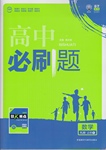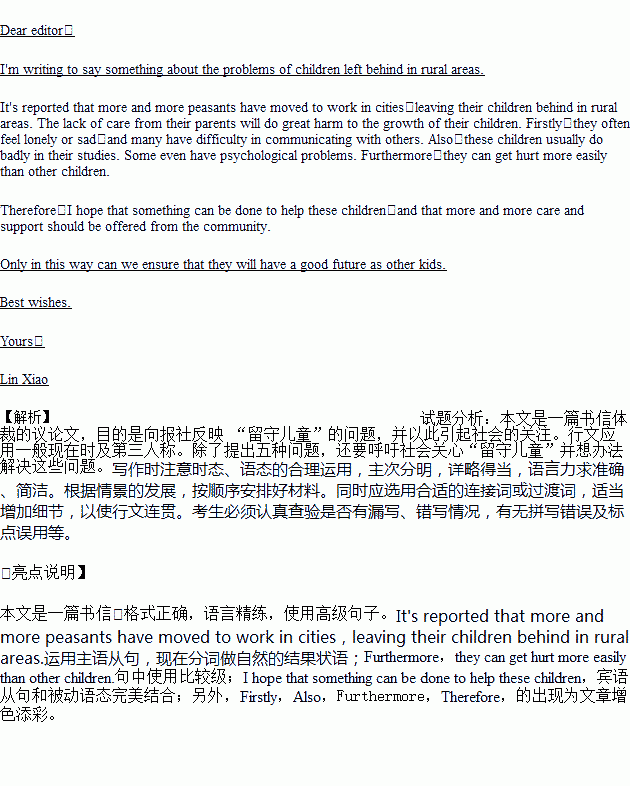题目内容
据报道,越来越多的农民去城市打工,孩子被留在农村,成为“留守儿童”。而缺少父母关爱对“留守儿童”的成长极为不利。假设你是林晓,请就这一问题给21st Century编辑部写一封信,阐述“留守儿童”存在的下列问题,并呼吁社会关注。
1.情感寂寞;
2.与人交流出现困难;
3.学习成绩不理想;
4.很多儿童出现心理问题;
5.容易受到伤害。
参考词汇:农村(rural area);心理的(psychological)
要求:字数100左右。开头和结尾已经为你写好,不计入总词数。
Dear editor,
I'm writing to say something about the problems of children left behind in rural areas.
____________________________________________________________________________________________
____________________________________________________________________________________________
____________________________________________________________________________________________
____________________________________________________________________________________________
____________________________________________________________________________________________
____________________________________________________________________________________________
____________________________________________________________________________________________
____________________________________________________________________________________________
___________________________________________________________________________
Only in this way can we ensure that they will have a good future as other kids.
Best wishes.
Yours,
Lin Xiao
 高中必刷题系列答案
高中必刷题系列答案

 nd studied the crowd of people making their way through Grand Central Station. He looked for the girl whose heart he knew, but whose face he didn’t, the girl with the rose.
nd studied the crowd of people making their way through Grand Central Station. He looked for the girl whose heart he knew, but whose face he didn’t, the girl with the rose. d, as long as it was nice to their taste, they ______ hesitated (犹豫) to use their hands to “help themselves” until all was finished.
d, as long as it was nice to their taste, they ______ hesitated (犹豫) to use their hands to “help themselves” until all was finished. simple B. a new C. the same D. their
simple B. a new C. the same D. their